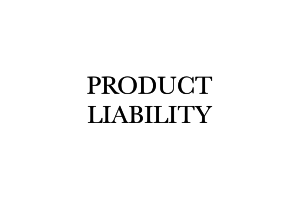Italian Business Types and Main Features
The basic commercial statute relating to company formation and organization is the Italian Civil Code (sects 2247 ff) of 1942, which incorporated the 1882 Commercial Code. The Civil Code undertook a major revision in 2003 as far as limited liability vehicles were concerned.
Being a member of the European Union, Italy is to align its domestic rules to the EU directives, and to respect the freedom of movement principles (this apply to the activity in Italy of entitles established under the rules of other member countries, and also to the transfer of company seat – which inevitably involves a change of company type).
Limited Co.
The most common type if commercial company is the società a responsabilità limitata (s.r.l. or SRL), i.e. a limited liability company similar to the German GmbH, the French SARL, the Spanish SL, and the like.
An SRL requires a minimum nominal capital of €1 (however, whereas contributions to capital are not in cash, the minimum is €10,000) and be easily adapted to specific needs of the partners in terms of governance. In fact, in the recent years SRL is increasingly being utilised as holding parent company. However, most of SRLs are operating commercial companies.
SRL does not need a plurality of members, in fact it can be created by one subject only either a natural or a juridical person. In that occurrence the company is labelled s.r.l. unip. The sole proprietor thus may enjoy a liability limited to the money injected in the company, provided that the whole subscribed capital is paid.
SRL is to be incorporated by public deed. Both memorandum and articles of association are published so the details of an SRL are public. Annual balance sheets and most relevant facts are also made public.
Recently (2012) an SRL variation has been introduced to ease starting-up business without significant capital: the “simplified SRL” reserved to natural persons (one or more) (società a responsabilità limitata semplificata – s.r.l.s. or SRLS): SRLS’s articles of association must conform to a ministerial form, and its he capital must be set between €1 and €10,000, paid up in cash. The formation process is cheaper than that of an ordinary SRL. This form of company has not yet get widespread application.
Corporations
The other most common type of commercial entity is the società per azioni (s.pa. or SPA), a joint stock company similar to the German AG, the French SA, the Spanish SA, ….
A SPA is increasingly regulated depending on the fact that its capital is wholly or partially on the market (either regulated or not). A SPA minimum capital is €50,000 (however, SPAs operating in special sectors, namely insurance, banking, investments) have a higher threshold.
A SPA’s shares ordinarily reflect the shareholders’ contributions; however, some flexibility is granted in creating special types of shares, and also allowing issuing of special financial instruments. The anonymity of shareholders is since long not allowed.
As SRL, also a SPA may have a single shareholder (s.p.a. unip.).
A SPA is to be incorporated by public deed. However, a special formation process is available as an alternative, for a SPA calling for public investment. Both memorandum and articles of association are published so the details of a SPA are public. Annual balance sheets and most relevant facts are also made public. Also syndicate agreement must be public, in case a SPA is listed in a stock exchange or it is open to venture capital.
At the end of 2015 there were some 1 million SRLs and some 35k SPAs operating in Italy.
Personal-based companies
Among the commercial entities most utilized in Italy there are other two kind of companies, especially for small business:
-
The società in nome collettivo (s.n.c. or SNC) a general partnership where all members (who can be either natural and juridical persons) are jointly and severally liable for the company’s obligations; and
-
the società in accomandita semplice (s.a.s. or SAS), a limited partnership, with managing members (so called accomandatari) who are personally liable, and non-operating members (so called accomandatanti) that benefit limited responsibility.
SNC was one of the preferred vehicles in the last decades for running small business, on account of its low operating costs (no minimum capital, no need for a supervisory body, no need to make the balance sheet public; various benefit intended to small-sized business). However, SNC members often were not aware of the large risks they were taking according to the principle of unlimited liability (in particular, a bankruptcy hitting an SNC necessarily is extended to the all members).
Now SNCs are definitely less common, especially in large business. According to a survey made in 2017 by the Fondazione Nazionale dei Commercialisti (“Società di persone: criticità e prospettive di modifica della disciplina alla luce dei dati statistici”), the number of SNCs has deceased by 20% in the last decade.
On their part, SASs are the heirs of the Middle Age commenda, a JV contract between a capitalist and an operating co-venturer. SASs too, are becoming less and less attractive (less 11%, according to the study mentioned above). A special SAS is the società in accomandita per azioni (s.a.p.a. or SAPA), a SPA whereas the managing shareholders have unlimited responsibility. They are definitely rare, and their utilization is confined to holding companies or other sophisticated company schemes.
At the end of 2015 there were some 400k SNCs and some 350k SAS operating in Italy.
Co-operatives
A peculiar kind of business organization is the cooperative (coop.), the XIX century alternative to the capitalistic way of structuring business. Cooperatives were utilised in Italy especially in the small banking, services (esp. transportation and logistics), insurance and agricolture sectors. Cooperatives may take the form of SPA or SRL; their essence is the mutual purpose (i.e. the cooperative’s main aim is to support the members, rather than to make profit) and the fact that their capital is variable according to the number of members and their various contributions. Cooperative members enjoy limited responsibility.
Solo business
Finally, there is the solo business (impresa individuale) i.e. business run by an individual, who incurs, of course, in unlimited responsibility. This kind of business has some attractiveness because no formal organization need to be established and there’s no need to make public any balance sheet. It is utilized mainly in sectors perceived (often wrongly) as a low-risks business (e.g. by commercial agents, small shops owners, …).
Joint Ventures
As for the forms of alliances (JV), more or less intended to a specific project, mention is to be made to
-
the consorzio, a sort of corporate joint venture originally intended as a cartel, but now open to all kind of inter-company co-operation. A member is jointly liable, together with the common fund, for any obligations taken in the name of a consortium on his behalf. However, often consortia take the form of SPA, SRL or COOP and in this occurrence the members are not personally liable for any consortium’s obligations;
-
the associazione / raggruppamento temporaneo di imprese (ATA): a non-corporate joint venture common in the large work projects. No separate entity is legally created in addition to the participating members;
-
the gruppo europeo di interesse economico (g.e.i.e. o GEIE) the EEIG governed by EC Regulation no. 2137/85 (very seldom utilized, indeed);
-
the contratto di rete, a hircocervus recently introduced (2009). Basically, a consortium intended to small-medium sized enterprises which benefits of certain fiscal and organizational bonus. The obligations undertaken by a contratto di rete are to be satisfied by the fund created for purpose only.













